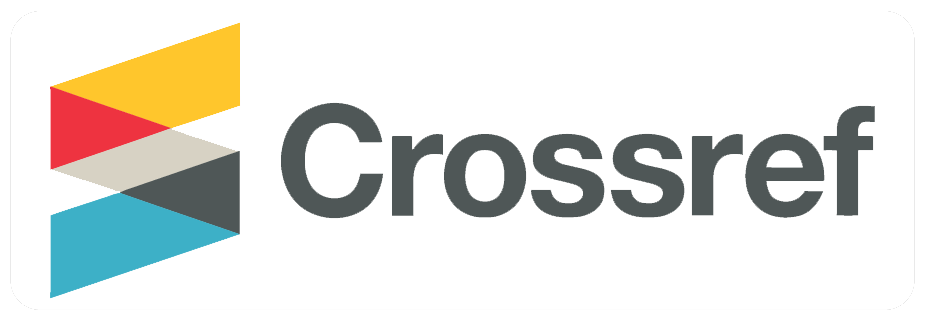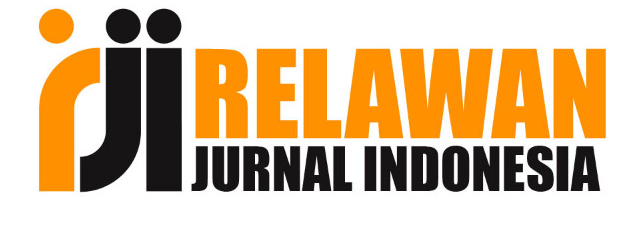Sistem Penilaian Kinerja Dosen menggunakan Decision Maker Respondent Opinion Model
DOI:
https://doi.org/10.36982/jiig.v13i1.2041Abstract
The subjectiveness of the performance assessment can not be avoided. The criteria determined for the performance assessment with human cognition is the subjectiveness phenomenon. This condition is being a challenge for the researcher to develop the performance assessment technique objectively. This method is a new approach to determine the performance assessment indicator with involving the employee to result in the realistic assessment. This model utilized the respondent opinion as a decision-maker to determine the relevance criteria and sub-criteria in the target achievement. The lecturer performance assessment is designed by utilizing the Decision-maker respondent opinion model (DMROM) algorithm. It is applicable to the criteria which contain the subjectiveness on the unlimited level. The data is arranged in the encoded item table to make it easy for the process of the calculation and sub-criteria which reach the support minimum limit. The algorithm is utilized the simple formula which could count the weight of each criterion and sub-criteria to the last level. The weight value on each sub-criteria will be accumulated as a sign of doing activities. The final result of this model is the list of the lecturer performance assessment who fulfilled the target or not as an input for the leader to take the decision.
Keywords:Â Opini responden, Decision maker respondent opinion model, performance appraisal
Â
Â
Subjektivitas pada penilaian kinerja tidak dapat dihindarkan. Penetapan kriteria untuk penilaian kinerja dengan kognisi manusia merupakan fenomena subjektif. Hal ini menjadi tantangan bagi peneliti untuk mengembangkan teknik penilaian kinerja secara objektif. Cara ini merupakan pendekatan baru untuk menentukan indikator penilaian kinerja dengan melilbatkan karyawan (responden) agar menghasilkan penilaian yang lebih realistis. Model ini menggunakan opini responden sebagai pengambil keputusan untuk menentukan kriteria dan subkriteria yang relevan dalam pencapaian target. Penilaian kinerja dosen dibangun dengan menggunakan algoritma Decision maker respondent opinion model (DMROM). Algoritma DMROM mampu diterapkan pada kriteria yang memiliki subkriteria pada level tak terbatas. Data disusun dalam Encoded item table untuk memudahkan proses perhitungan dan seleksi subkriteria yang mencapai batas minimum support. Algoritma ini juga menggunakan rumus sederhana yang dapat menghitung bobot pada masing-masing kriteria dan subkriteria di level ke-n. Nilai bobot pada masing-masing subkriteria akan diakumulasikan sebagai tanda melaksanakan kegiatan. Hasil akhir model ini adalah daftar penilaian kinerja dosen yang memenuhi target atau tidak sebagai masukan bagi pimpinan untuk mengambil keputusan.
 Kata Kunci : Opini responden, Decision maker respondent opinion model, Penilaian kinerja
Â
Â
Â
References
Chen, M., Mao, S. and Liu, Y. (2014) ‘Big data: A survey’, Mobile Networks and Applications, 19(2), pp. 171–209. doi: 10.1007/s11036-013-0489-0.
Cui, N. and Zhang, W. (2018) ‘Research on Performance Appraisal System of Primary School Teachers Based on AHP’, in International Conference on Education, Economics and Social Science (ICEESS 2018), pp. 95–98. DOI: 10.2991/iceess-18.2018.24.
Denny Subagyo, H. et al. (2017) Decision Supporting System Employee Performance Appraisal Narotama University with Simple Additive Weighting Method (SAW), International Conference Green Technology. Available at: http://conferences.uin-malang.ac.id/index.php/ICGT/article/view/608 (Accessed: 22 March 2021).
Al Fath Riza Kholdani, Muflih and Nur Arminarahmah (2017) ‘Sistem Pendukung Keputusan Penilaian Kinerja Dosen Dengan Metode Ahp Dan Saw’, Jurnal Teknologi Informasi Universitas Lambung Mangkurat (JTIULM), 2(1), pp. 15–20. doi: 10.20527/jtiulm.v2i1.14.
Fikri, M. A., Gernowo, R. and Surarso, B. (2020) ‘Service Oriented Architecture (SOA) and Fuzzy AHP-SAW for Lecturer Performance Analysis in Real-time’. doi: 10.1051/E3SCONF/202020214003.
Hakim, A. (2015) ‘Contribution of Competence Teacher (Pedagogical, Personality, Professional Competence and Social) On the Performance of Learning’, The International Journal Of Engineering And Science (IJES), 4(2), pp. 1–12. Available at: www.theijes.com.
Hinderks, A. et al. (2019) ‘Developing a UX KPI based on the user experience questionnaire’, Computer Standards and Interfaces, 65(April 2018), pp. 38–44. doi: 10.1016/j.csi.2019.01.007.
Juariyah, J. and Wijayanti, N. (2020) ‘Opini Mahasiswa Dalam Pemilu Presiden 2019 (Studi Kasus Aktifis Bem Fisip Tentang #2019Gantipresiden Pada Lima (5) Perguruan Tinggi Di Kabupaten Jember)’, Mediakom, 4(1), pp. 43–57. doi: 10.32528/mdk.v4i1.3571.
Kusuma, A. H. P., Rina., & Syam, A. H. et al. (2018) ‘The main role of locus of control and professional ethics on lecturer’s performance (Indonesian lecturer empirical study)’, International Review of Management and Marketing, 8(5), p. 9. Available at: https://www.econjournals.com/index.php/irmm/article/view/6884%0Ahttps://ideas.repec.org/a/eco/journ3/2018-05-2.html%0Ahttps://www.researchgate.net/publication/327339720_International_Review_of_Management_and_Marketing_The_Main_Role_of_Locus_of_Control_and.
Lucky, E. O.-I. (2013) ‘The Teaching Qualitification, Characteristics, Competence and Lecturer Performance : A Case Study at the University of Ilorin, Nigeria’.
Luthra, S. and Mangla, S. K. (2018) ‘Evaluating challenges to Industry 4.0 initiatives for supply chain sustainability in emerging economies’, Process Safety and Environmental Protection. doi: 10.1016/j.psep.2018.04.018.
Majumder, M. (2015) ‘Multi-Criteria Decision Making’, in International Journal for Research in Applied Science & Engineering Technology (IJRASET), pp. 35–47. doi: 10.1007/978-981-4560-73-3_2.
Malonda, R. (2019) ‘Opini Publik Terhadap Pencitraan Politik dalam Meningkatkan Tingkat Elektabilitas Politik Pada Pemilu Presiden Tahun 2019 di Kabupaten Mihanasa’, Jurnal Politico, 8, pp. 1–15. Available at: https://ejournal.unsrat.ac.id/index.php/politico/issue/view/2480.
Mujiastuti, R. (2019) ‘Sistem Penilaian Kinerja Karyawan Menggunakan Metode Simple Additive Weighting (SAW)’, JUST IT: Jurnal Sistem Informasi, Teknologi Informasi …. Available at: https://jurnal.umj.ac.id/index.php/just-it/article/view/4108.
Nastišin, I. Ľ. (2017) ‘Research on the most important KPIs in social media that should be tracked’, Journal of Global Science, pp. 1–6.
Presiden Republik Indonesia (2009) Peraturan Republik Indonesia Nomor 37 Tahun 2009 Tentang Dosen. Available at: http://sipma.ui.ac.id/files/dokumen/U_DOSEN/PP 37 Tahun 2009 DOSEN.pdf.
Terttiaavini (2014) ‘Sistem Informasi Evaluasi Kinerja Dosen Dengan Metode 360 Degree Berbasis Web’, in Sistem Informasi Evaluasi Kinerja Dosen Dengan Metode 360 Degree Berbasis Web. Seminar Nasional Teknologi Informasi dan Multimedia, pp. 1-5|ISSN : 2302-3805.
Terttiaavini et al. (2019) ‘Design a Decision Support System to Evaluate The Performance of Indonesian Lecturers by Developing a Simple Additive Weighting Method’, Test Engineering and Management, 28(11), pp. 36–41. Available at: http://sersc.org/journals/index.php/IJAST/article/view/1038/903.
Terttiaavini et al. (2021) ‘Building a Weighted Performance Indicator Concept utilized The Respondent ’ s Opinion Approach’, in 2021 3rd International Conference on Electronics Representation and Algorithm (ICERA). 3rd edn. IEEE, pp. 137–142. DOI: 10.21203/rs.3.rs-178466/v1.
Downloads
Published
How to Cite
Issue
Section
License

This work is licensed under a Creative Commons Attribution-ShareAlike 4.0 International License.










